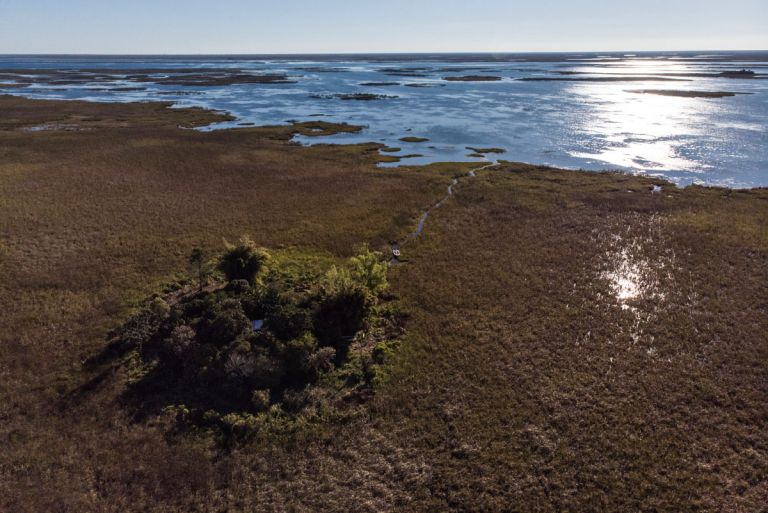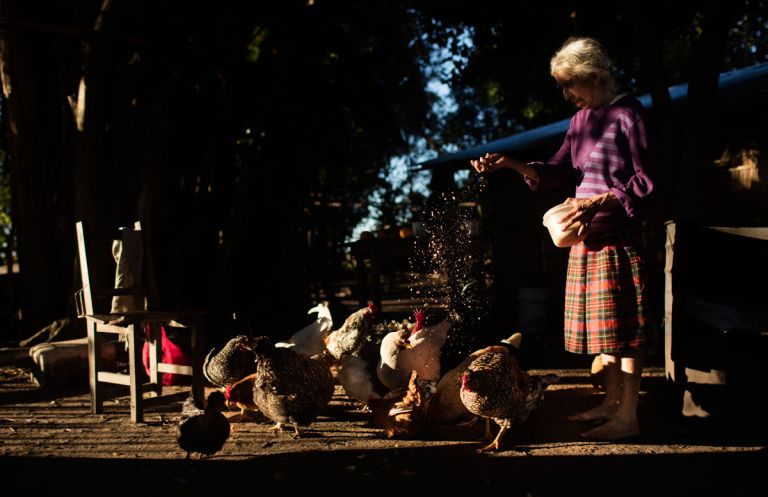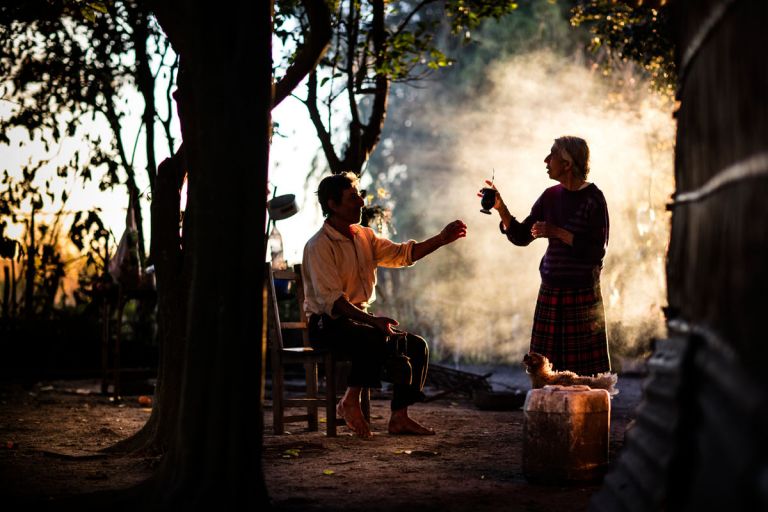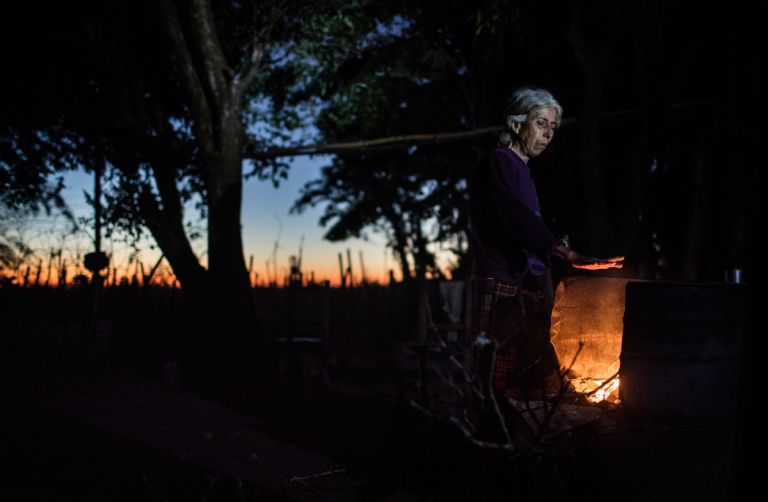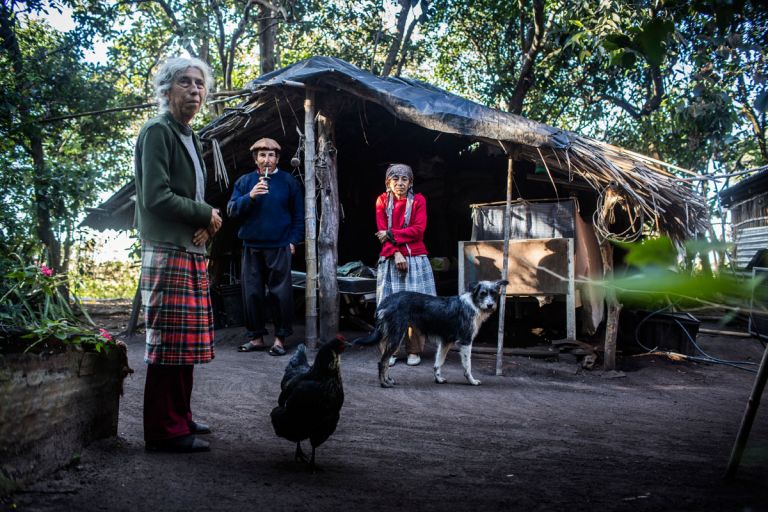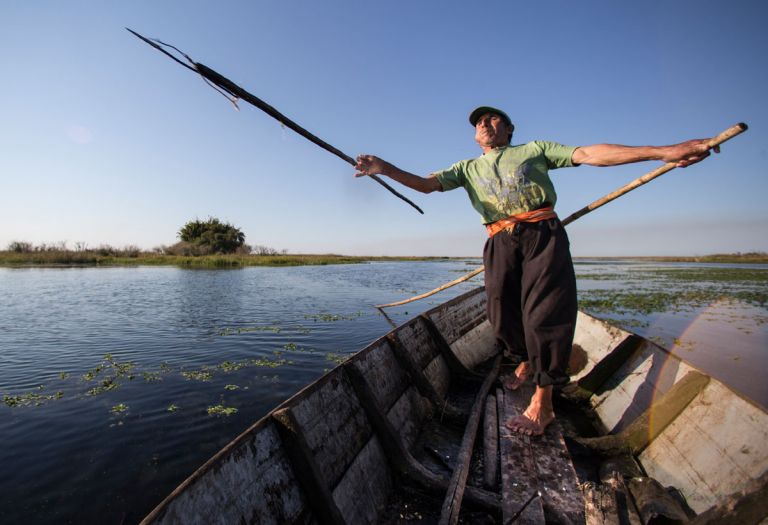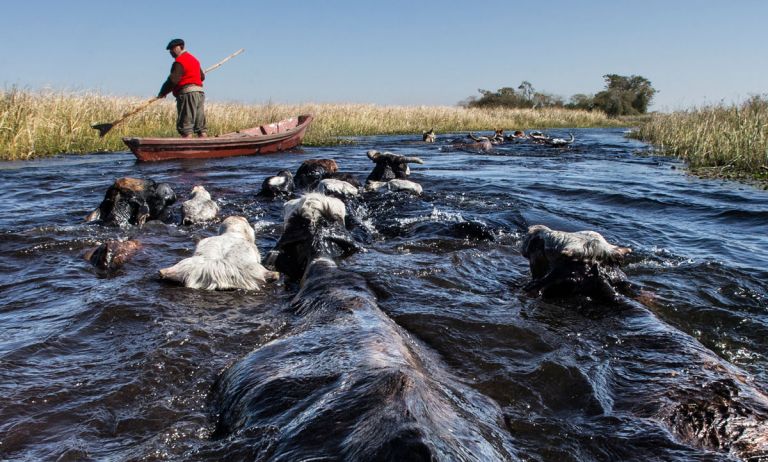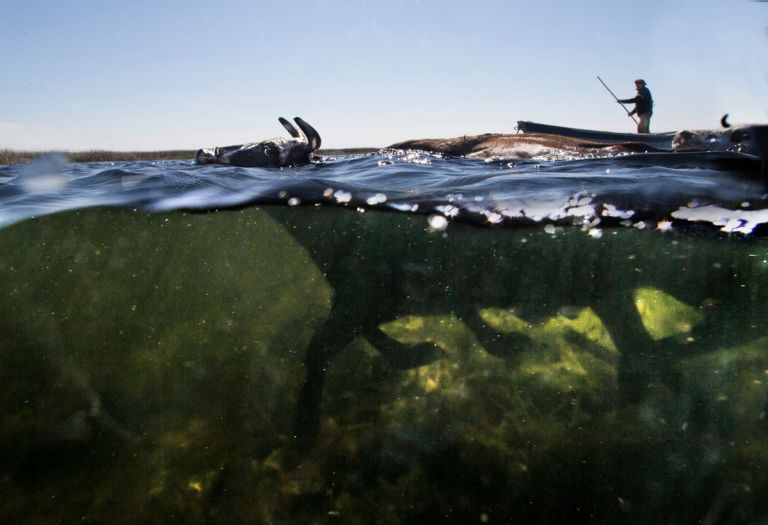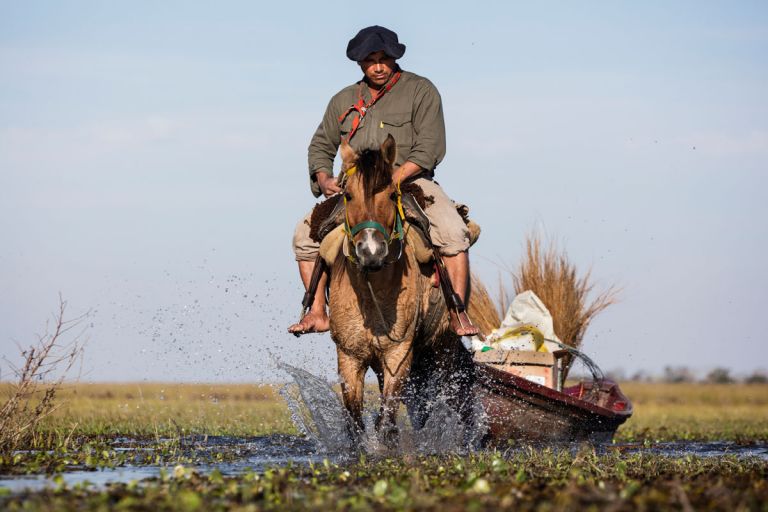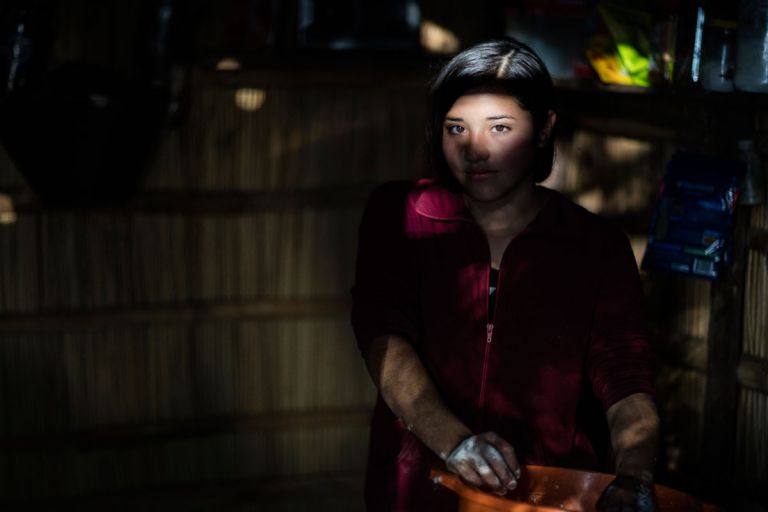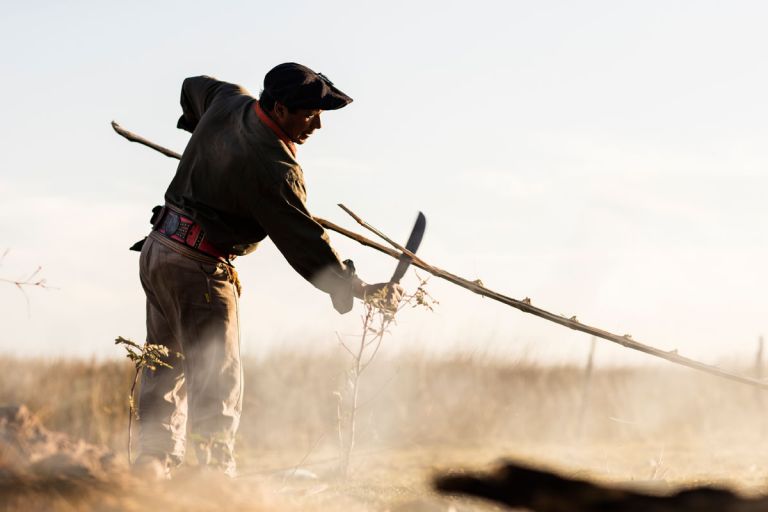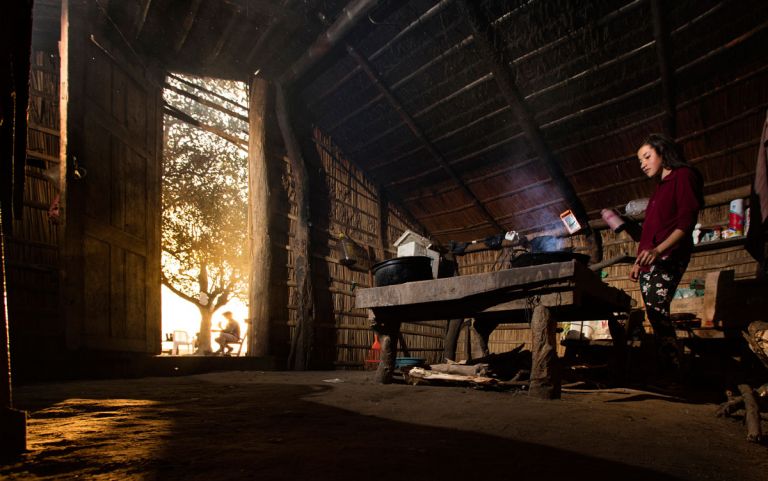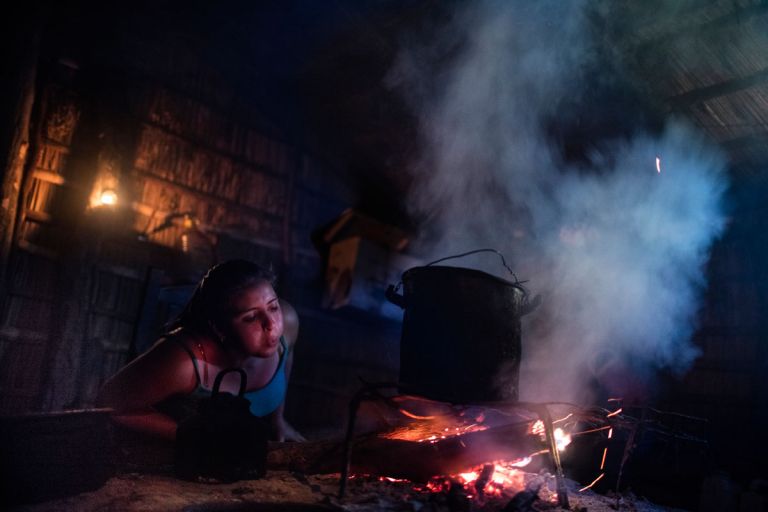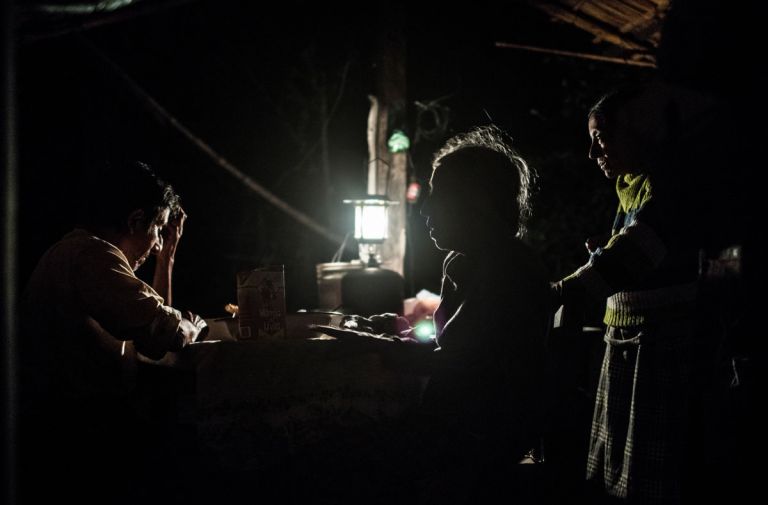In Esteros del Iberá, Argentina, some families live in peace, absolutely isolated from the modern world, without speaking Spanish, they live without electricity, without gas, without any basic services. They gain their livelihood through hunting and fishing. Their economy is based on barter, but because of recent legislation their lifestyle is gradually coming to an end. The exchange of skins and other extractable raw materials of the area is already prohibited, so these last families living there will soon disappear. This peaceful and natural way of life is seriously threatened by new regulations that have designated these lands as nature reserves. The Esteros del Iberá are one of the most important natural protected areas in South America, around 13,000 km², a large part of them covered by water forming lagoons, streams and estuaries. It also has highlands where forests and savannahs thrive.
This wonderful place would not have evolved if the Paraná River had not changed its course towards the north thousands of years ago, leaving the centre of the province of Corrientes. The depression then became lagoons, channels, estuaries and reservoirs, which absorb rainfall, practically functioning as an enormous and efficient natural dam. Only a small percentage of the water flows into the Paraná in the southwest through the Corrientes River.
